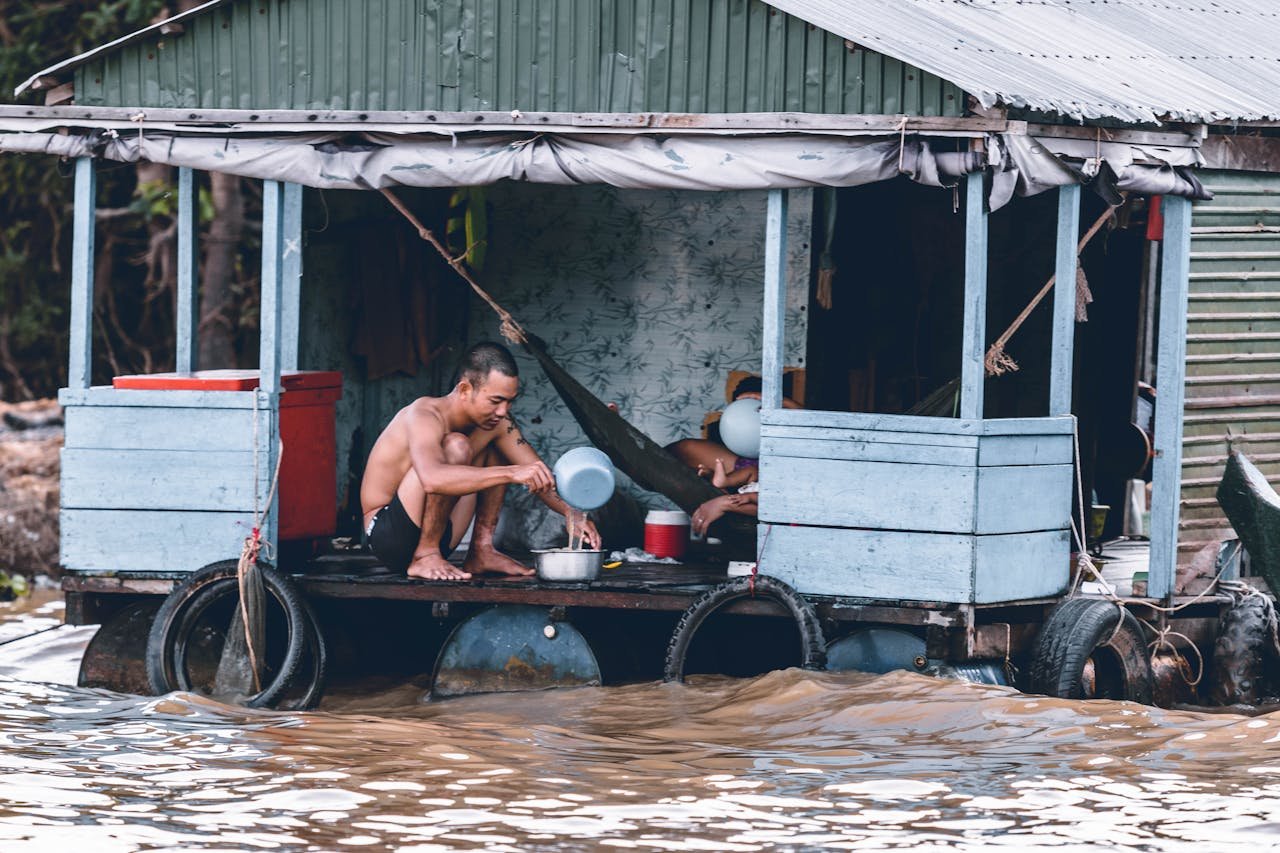Many countries remain poor because of a mix of deep and complicated problems. These include things like weak economies, unfair trade, and political issues that make it hard for them to grow and improve living standards.
Some places face long-term challenges such as lack of education, poor infrastructure, and limited access to resources. On top of that, the global system often favours richer countries, making it tougher for poorer ones to catch up.
I want to explore these hidden forces that keep some nations struggling, so we can better understand why the gap between rich and poor stays wide.
Key Takeaways
- Economic and political challenges slow down growth in poorer countries.
- Global rules and trade can make it harder for poorer nations to improve.
- Internal problems like education and infrastructure also hold countries back.
Core Economic Barriers
Many factors block some countries from growing rich, often in ways that are hard to see at first. These include things from the past, problems with how the country is run, and struggles with education and skills.
Historical Legacies and Colonial Impact
I think one big reason some countries stay poor is because of their history, especially if they were colonies. Colonial powers often took the best resources with little benefit left behind. This left many countries without strong economies or infrastructure.
Also, colonial rulers set up systems that favoured certain groups and ignored others. These divisions often caused long-lasting conflicts. It’s like starting a race far behind others with many obstacles in the way.
The effects still show today in poor roads, weak industry, and low investment. This makes it hard for these countries to catch up.
Institutional Weaknesses and Corruption
I see weak institutions as a serious barrier. When governments or legal systems don’t work properly, businesses struggle to grow. Courts might be slow, laws unclear, or contracts not enforced.
Corruption makes this worse. If people have to pay bribes to get things done, it raises costs and scares away investors. It also means money meant for public services is lost.
Strong institutions create trust and stability, but many poor countries lack this. This trap stops progress by making it risky to start or expand businesses.
Challenges in Education and Human Capital
Education shapes what people can do, and many poor countries face big problems here. Schools might lack teachers, books, or even proper buildings. Many children don’t finish school or learn the skills needed for better jobs.
This means workers have fewer chances to improve their lives or contribute to the economy. It also means there are fewer skilled workers for industries to hire.
I believe that without enough focus on education and skills, these countries remain stuck in jobs with low pay and little growth. It’s hard to build a strong economy when human talent is limited.
Global Forces Shaping Inequality
I see how some global systems make it harder for poorer countries to grow. Trade rules, debts, and big companies all play a role in keeping money and power unevenly spread.
Unequal Trade Relationships
Many poorer countries rely on selling raw materials like minerals or crops to richer nations. These products usually sell for low prices, while the finished goods they need cost much more. This trade imbalance means poorer countries earn less and struggle to develop industries.
Trade rules often favour richer countries. For example, tariffs and subsidies protect their own businesses but make it tough for poorer countries to compete. This unequal setup limits economic growth for poorer nations over time.
Foreign Debt and Financial Pressures
Several poor countries owe large debts to international lenders. Paying interest on these debts uses up money that could fund schools, hospitals, or infrastructure. Sometimes, countries must cut public spending to meet loan rules, which hurts their people.
Debt can trap countries in cycles where they borrow more to pay old loans. This financial pressure reduces options for investment in local businesses and services. It slows down improvements in living standards and growth.
Multinational Corporations and Resource Extraction
Big companies from rich countries often operate in poorer ones, extracting natural resources like oil or minerals. While this can bring jobs, profits usually flow back to the corporations, not local communities.
Sometimes these companies avoid fair taxes or harm the environment. This leaves countries with fewer benefits despite their resources. As a result, local economies remain weak and dependent on foreign interests.
Domestic Obstacles to Growth
Many countries struggle to grow because of problems inside their borders. These problems can make it hard for people to start businesses or for leaders to keep the country stable and fair.
Political Instability and Governance Issues
I’ve seen how political instability can stop progress in its tracks. When governments keep changing or when leaders act unfairly, it scares away investors and slows economic growth. People lose trust in the system, and corruption often rises.
Bad governance means money that should go to schools, hospitals, or roads might be wasted or stolen. Without good rules and steady leadership, it’s tough for a country to build the kind of future its people deserve.
Barriers to Entrepreneurship and Innovation
Starting a business or inventing something new should be a chance for anyone. But in many poor countries, this is much harder than it sounds. I’ve noticed that too many rules or high taxes make people give up before they even try.
Access to money is another big problem. Banks often won’t lend to new businesses, so many people can’t grow their ideas. Without businesses growing or new ideas coming out, a country’s economy can stay stuck instead of moving forward.
FAQs
Why do some countries stay poor even if they have resources?
I’ve learned that having resources isn’t enough. Things like poor leadership, lack of education, and bad infrastructure can stop a country from growing. Sometimes, resources are controlled by a few people who don’t share wealth.
Does history affect poverty in countries?
Yes, history plays a big role. Colonisation and unfair trade deals in the past have left many countries with weak economies. These effects can last for a long time, making it harder to build wealth.
Can foreign aid help reduce poverty?
Foreign aid can help, but it isn’t always enough. Sometimes, aid doesn’t reach the people who need it most. It can also make countries dependent on help instead of building their own economies.
What role does education play?
Education is very important. When people learn skills and get opportunities, they can earn more and improve their country’s economy. Poor education systems hold countries back.
Is corruption a big problem?
Absolutely. Corruption means money meant for public good is wasted or stolen. It stops investments and development, keeping countries poor.
| Factor | How It Affects Poverty |
|---|---|
| Leadership | Good leaders can build strong systems |
| Infrastructure | Roads, schools, hospitals are needed |
| Trade | Fair trade helps grow economies |
| Governance | Transparency reduces corruption |
If you want to understand why poverty stays in some places, these are key reasons to think about.





